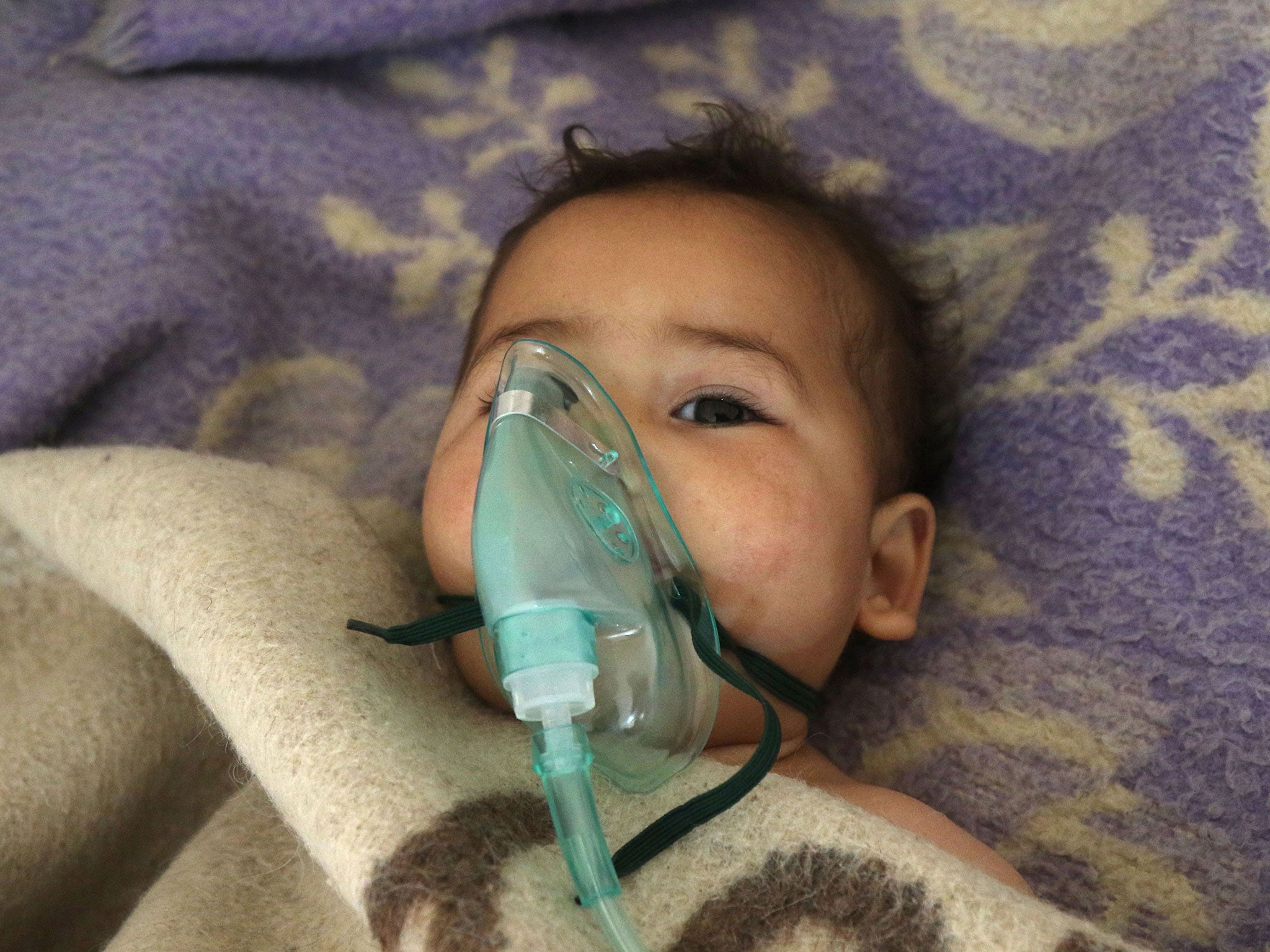Turkish autopsy results show chemical weapons were used in Syria attack
International outrage continues to mount over attack in Khan Sheikhoun which killed at least 52 adults and 20 children

Postmortems carried out on the bodies of people who died in a suspected gas attack in Syria show the victims were exposed to chemical weapons, Turkey’s justice minister has said.
More than 30 injured people were taken for treatment across the border in Turkey after local hospitals in rebel-held Idlib were overwhelmed in the aftermath of Tuesday’s attack. Three subsequently died, Bekir Bozdag said on Thursday, blaming the Syrian government for the incident.
A statement from the Syrian foreign ministry issued on Thursday again denied responsibility, saying that the army “has not and will not use chemical weapons against our people or terrorists” and a strike had instead targeted an extremist rebel group’s weapons depot. Damascus’ allies in Moscow also said that chemical weapons use is “absolutely unacceptable”, adding that there was no objective data from which to draw conclusions that the attack had been chemical.
At least 72 people died in the incident in Khan Sheikhoun, during which medical workers on the ground and other witnesses said victims suffered from convulsions, vomiting and suffocation – symptoms of inhaling chemical agents such as chlorine and sarin.

Medical charity Medecins Sans Frontieres (MSF) also said in a statement on Wednesday that evidence pointed to the use of both chlorine and sarin.
Damascus and the Kremlin both said that an explosion at a rebel ammunition depot was to blame for the deaths – an explanation the international community swiftly rejected.
Bashar al-Assad’s government gave up its chemical weapons stocks to an international watchdog in 2013 after a sarin gas attack in a suburb of Damascus which killed hundreds of civilians, although rebel officials have long accused the regime of keeping some of its arsenal.
The United Nations Security Council held an emergency session in New York on Wednesday to discuss imposing sanctions on those found responsible for this week’s attack – a move rejected by Russia’s deputy ambassador, Vladimir Safronkov.
Join our commenting forum
Join thought-provoking conversations, follow other Independent readers and see their replies
Comments
Bookmark popover
Removed from bookmarks